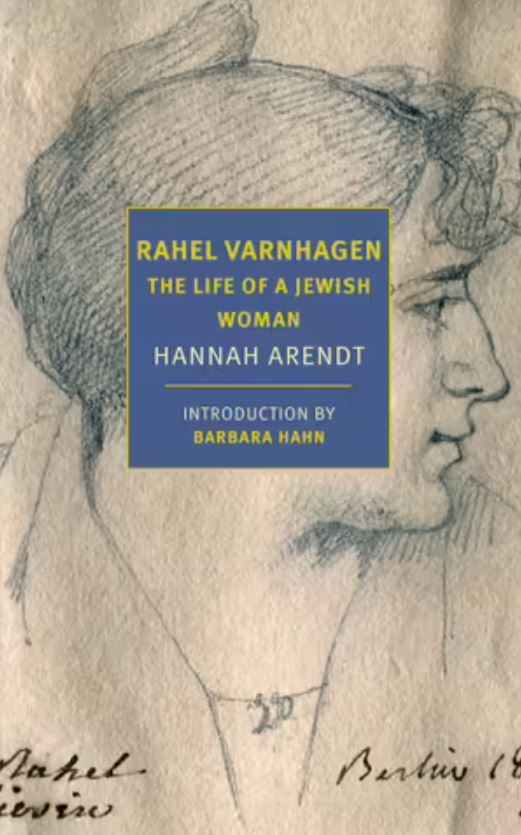In Rahel Varnhagen, reissued this month for the New York Review of Books Classics series, Hannah Arendt considers her subject “a rebel”. Written in the 1930s but not published until 1957, this intimate biography reflects Arendt’s own story of fragile love and precarity. Excluded as Jews and women, the otherness of both provided a basis for social criticism – the inability of their social worlds to live up to the promise of a universal community – and allowed them to “see life as a whole”.
Rahel Varnhagen née Levin (1771-1833) was an enigmatic figure of German intellectual life at the turn of the 19th century. This Romantic and Idealist literary and philosophical milieu, which included Goethe, Schlegel, Fichte, Hegel and Heine, was marked by the French Revolution and Napoleonic Wars. Varnhagen hosted salons in Berlin that allowed her to speak with others as an individual despite the disadvantages of being Jewish, a woman and poor. She was enamoured with Goethe, who showed her the “generalizing power of poetry”. Varnhagen’s own poetry lay in the letters written to her guests, and several thousand were published posthumously by her husband.
Arendt’s biography is striking for its sensitive portrayal of Varnhagen’s emotional life as well as for the early appearance of many of Arendt’s important philosophical concepts. The prose is markedly different from her later work and partially reflects a homage to Goethe. The book reads as if it’s taken directly from a diary, with accounts of Varnhagen’s appreciation of beauty and pleasure, and even deciphers her recurring dreams. For Arendt, “[w]hat interested me solely was to narrate the story of Rahel’s life as she herself might have told it”.
Read the article by Michael Lazarus in The Saturday Paper.

